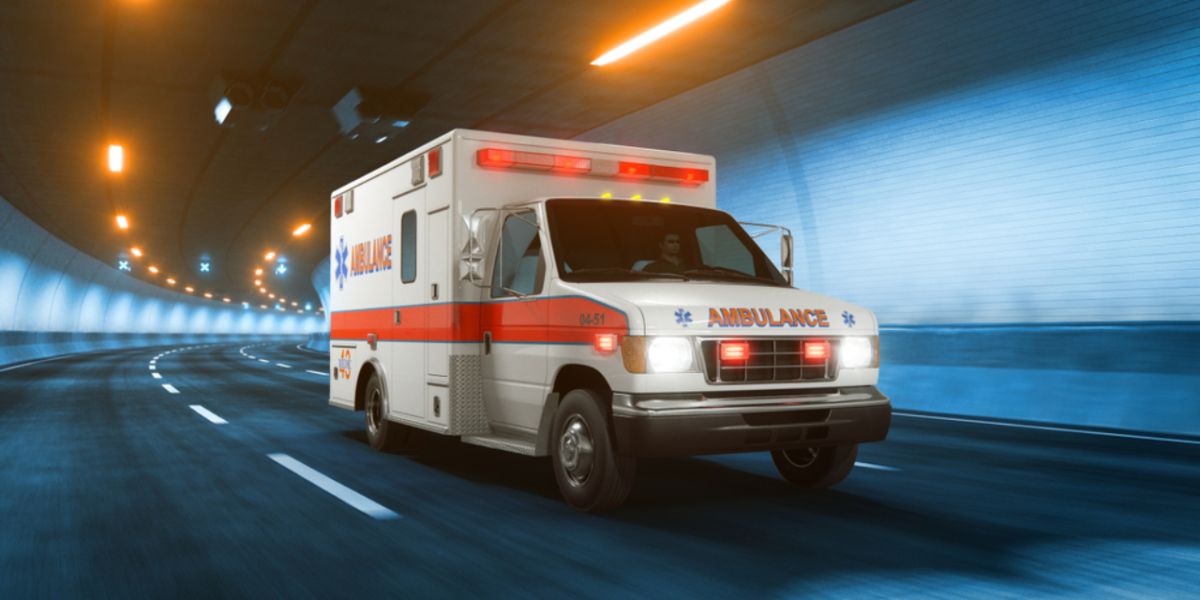
One of the biggest worries expats have to deal with when arriving in a new country is what to do in case of an emergency. Different types of emergencies require different actions. The good news is that in Germany, there's a clear understanding of what constitutes an emergency and what steps must be taken for fast and efficient care of the people involved in difficult and unexpected situations.
Whether it is a medical emergency or an emergency requiring the police's intervention, it's advantageous — to the point that you can save a life — to know in advance whom to call for what kind of help. By the end of this article, you will have substantial knowledge of what to do in an emergency to protect yourself, a family member, or a stranger in need during your stay in Germany.
Life-threatening medical emergencies in Germany
In the event of a medical emergency in Germany that doesn't require an ambulance, go to the emergency department (A&E or Notaufnahme in German) of the nearest hospital. However, if you are not in a position to reach the A&E by yourself and require an ambulance, call 112 — EU's emergency telephone number — for immediate treatment and quick transportation. Note that for an ambulance service (ground or air ambulance), you may have to make a contribution depending on your insurance. 112 is usually reached by individuals who are witnessing or are the victims of a fire, are involved or present in a serious accident, are trapped or want to help someone who is trapped, are with an unconscious person or someone who's suffocating, and have witnessed a suicide attempt.
Important:
You can call 112 from your mobile phone, a landline, or a payphone free of charge.
Useful link:
Find a hospital in Berlin
Mild medical emergencies in Germany
If you need to speak to a doctor and your GP is closed (i.e., late in the evening, during the night, on weekends, or on public holidays), you can call 116 117 and connect with a doctor-on-call. A pharmacy is called Apotheke in German, and if you need one during hours when pharmacies are usually closed (e.g., on a Sunday or in the evening), then you can call 0800 002 28 33 from a landline or 22 8 33 from a mobile or visit the nearest pharmacy and check the note on the door listing nearby pharmacies in the area that are open to deal with emergencies.
Calling the police in Germany
If you need to call the police in Germany, call 110. You should call the police for burglaries, other crimes (i.e., theft, arson, assault, discrimination, etc.), and road accidents, as well as in cases of domestic violence and sexual abuse. In cases of domestic violence, women or relatives of the victim can also call 08000 116 016, a 24/7 helpline giving confidential and anonymous advice and counseling, free of charge, in 17 languages, including the German sign language. In addition, the police can be contacted for administrative offenses such as loud noises during rest hours, which, in Germany, are usually between 10 PM and 6 AM. Lastly, you can call the police if you notice political or religious radicalization in your neighborhood or family. Alternatively, you can call the Radicalization Advice Centre at 0911 943 43 43 if you see advice, fearing that a person in your environment has radicalization tendencies.
Important:
When you call the police, it's important to be able to provide the following information quickly to receive help: your name, location, and reason for calling. Remember not to rush to put the phone down unless the operator asks you to do so.
Good to know:
The police are different from the Bundesnachrichtendienst, the foreign intelligence service of the Federal Republic of Germany, compiling political, economic, and military foreign intelligence.
The police cannot search an apartment without the permission of a judge unless the person in the apartment needs immediate rescue.
Useful links:
Gewalt gegen Frauen nationwide counseling service for women who have experienced or are experiencing violence
Basic vocabulary for an emergency in Germany
- Police: Polizei
- Fire service: Feuerwehr
- Ambulance: Rettungswagen or Krankenwagen
- Pharmacy: Apotheke
- Hospital: Krankenhaus
- Poisoning emergency: Vergiftungen Notfall
- Help!: Hilfe!
- It's an emergency: Es ist ein Notfall/dringend
- I need a doctor: Ich brauche einen Arzt
- There's been an accident: Es gab einen Unfall
- Heart attack: Herzinfarkt
- Stroke: Schlaganfall
- Choking: Würgend
- Difficulty breathing: Schwierigkeiten beim Atmen
- Bleeding: Blutung
- In labor: Gebären
A state of emergency in Germany
Disaster relief responses are decided by each sovereign federated state (e.g., Bavaria, Saxony, Berlin, North Rhine-Westphalia, etc.). Nevertheless, the federal government can declare a nationwide state of emergency to secure its ability to act in a crisis without having to go through the parliament's approval. In the case of the COVID-19 pandemic, the government implemented safety measures, including the limitation of constitutionally mandated freedoms (e.g., freedom of movement), on the basis of the 2001 Law on Prevention and Control of Infectious Diseases.
We do our best to provide accurate and up to date information. However, if you have noticed any inaccuracies in this article, please let us know in the comments section below.











